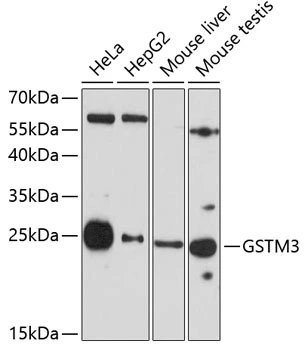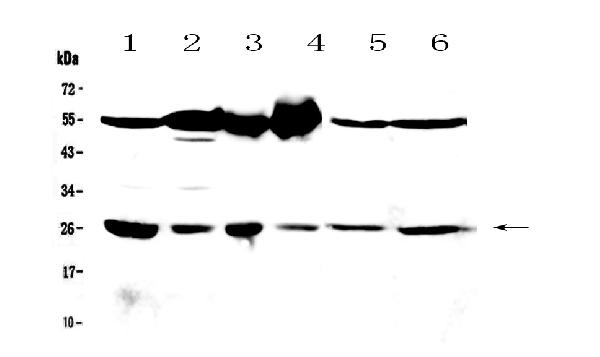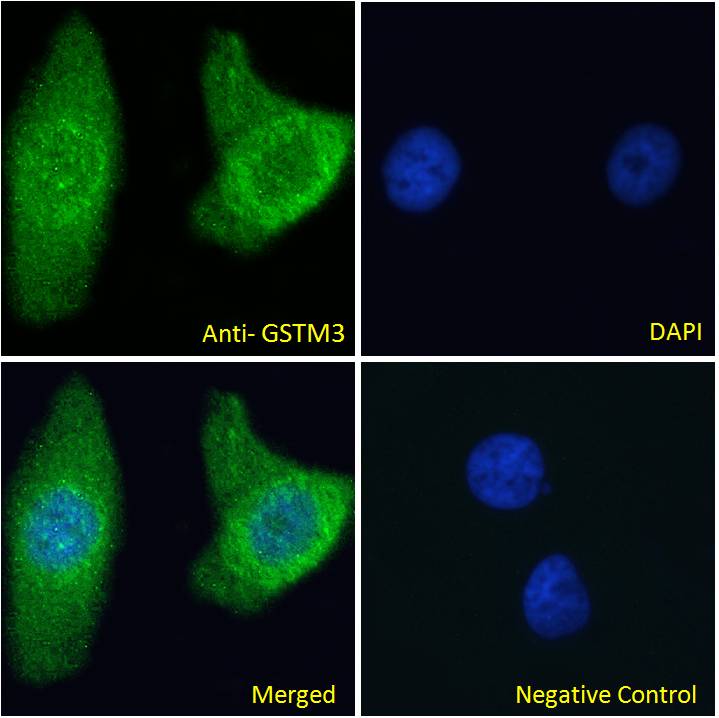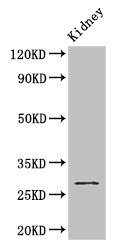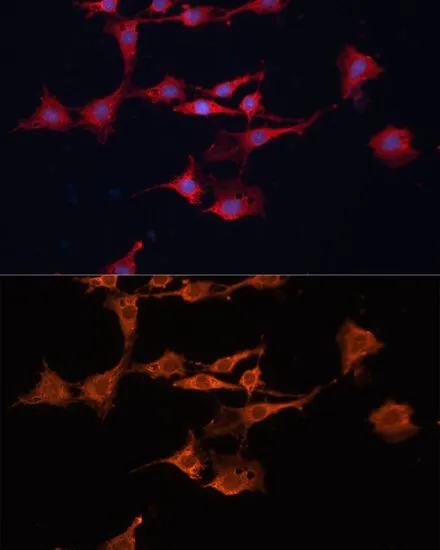
ICC/IF analysis of C6 cells using GTX65535 GSTM3 antibody. Blue : DAPI Dilution : 1:100
GSTM3 antibody
GTX65535
ApplicationsImmunoFluorescence, Western Blot, ImmunoCytoChemistry
Product group Antibodies
ReactivityHuman, Mouse, Rat
TargetGSTM3
Overview
- SupplierGeneTex
- Product NameGSTM3 antibody
- Delivery Days Customer9
- Application Supplier NoteWB: 1:500 - 1:2000. ICC/IF: 1:50 - 1:200. *Optimal dilutions/concentrations should be determined by the researcher.Not tested in other applications.
- ApplicationsImmunoFluorescence, Western Blot, ImmunoCytoChemistry
- CertificationResearch Use Only
- ClonalityPolyclonal
- ConjugateUnconjugated
- Gene ID2947
- Target nameGSTM3
- Target descriptionglutathione S-transferase mu 3
- Target synonymsGST5, GSTB, GSTM3-3, GSTM3TV2, GTM3, hGSTM3-3, glutathione S-transferase Mu 3, GST class-mu 3, S-(hydroxyalkyl)glutathione lyase M3, brain GST, brain type mu-glutathione S-transferase, epididymis secretory sperm binding protein, glutathione S-alkyltransferase M3, glutathione S-aralkyltransferase M3, glutathione S-aryltransferase M3, glutathione S-transferase M3 (brain), glutathione S-transferase mu 3 (brain), glutathione S-transferase, Mu-3
- HostRabbit
- IsotypeIgG
- Protein IDP21266
- Protein NameGlutathione S-transferase Mu 3
- Scientific DescriptionCytosolic and membrane-bound forms of glutathione S-transferase are encoded by two distinct supergene families. At present, eight distinct classes of the soluble cytoplasmic mammalian glutathione S-transferases have been identified: alpha, kappa, mu, omega, pi, sigma, theta and zeta. This gene encodes a glutathione S-transferase that belongs to the mu class. The mu class of enzymes functions in the detoxification of electrophilic compounds, including carcinogens, therapeutic drugs, environmental toxins and products of oxidative stress, by conjugation with glutathione. The genes encoding the mu class of enzymes are organized in a gene cluster on chromosome 1p13.3 and are known to be highly polymorphic. These genetic variations can change an individuals susceptibility to carcinogens and toxins as well as affect the toxicity and efficacy of certain drugs. Mutations of this class mu gene have been linked with a slight increase in a number of cancers, likely due to exposure with environmental toxins. Alternative splicing results in multiple transcript variants. [provided by RefSeq, Nov 2008]
- ReactivityHuman, Mouse, Rat
- Storage Instruction-20°C or -80°C,2°C to 8°C
- UNSPSC41116161
References
- Anti-Cancer Effects and Tumor Marker Role of Glutathione S-Transferase Mu 5 in Human Bladder Cancer. Jou YC et al., 2021 Mar 17, Int J Mol SciRead this paper

